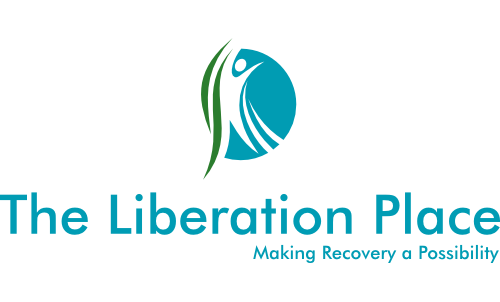The PLEASED Skill
Taking care of our body holds a significant amount of importance for maintaining our own mental health. An out-of-balance body increases vulnerability to our negative emotional experiences and therefore, we are more likely to blend with the parts of our personality that exist within our emotion mind. Our ability to remain within our own unique window of emotion regulation is also impacted by our physical well-being. This is why, in my opinion, the DBT PLEASED Skill is part of the foundation for building a lifestyle that supports behaviour change, and for me personally, it's a fundamental aspect of Living the Life I want to Live. If we follow the particular guidelines provided in the PLEASED Skill to take care of our body, it will automatically improve our emotional resilience, and actually increase the window of opportunity for emotion regulation
DBT gives us the ability to remember these skills by using the term PLEASE which stands for the following:
Physical Wellness
List Barriers and Resources
Eat a Balanced Diet
Avoid mood-Altering substances.
Sleep Hygiene
Exercise on a Regular Basis
Daily practice of Skills
Knowing what each aspect of the PLEASE skill stands for is one thing, implementing it behaviourally in our lives is another. So, to start us off, let's briefly go over each part to provide a basic understanding of what it means to use this skill to guide the choices we make from a Healthy Adult perspective.
"If we use the skills in this part of the Emotion Regulation module to take care of our body, it will automatically increase our emotional resilience, and actually increase the window of opportunity for emotion regulation."
~Steven Morris RP.
Physical Wellness - Being sick lowers our resistance to any negative emotional experience. The healthier we can become, the better we will be able to regulate our emotions. If you are prescribed a medication, please take it as prescribed. If you don't like the medication you're taking, don't just stop taking it, talk to the medical professional that prescribed it to you about your concerns. There can be some significant physical and emotional side effects when abruptly stopping the intake of medication, so please do so under the guidance of a professional. There is absolutely nothing wrong with speaking up about your concerns around medication, you are allowed to ask questions and voice your opinion about the things you are being asked to put into your body. Many people who participate in a DBT skills training program actually fear going to see their family doctor, or a even attending walk-in clinic of any kind. Obviously, this can be for a variety of valid and different reasons, and it's important to step into this fear so we can work through the associated schema to help us in building and maintaining a healthy lifestyle.
List Barriers and Resources – When we are trying to create new behaviour patterns there are many barriers that get in our way. This includes any ineffective behaviours that we use to soothe the vulnerable parts of our personality. Things like substance use, video games, pornography use, excessive shopping, are just a few of the things that get in the way of living the life I want to live. Writing these things down draws attention to them being barriers to achieving our personal goals and opens up the possibility to create a list of alternate behaviours, or resources we can use instead of turning to these old familiar coping mechanisms.
Eat a Balanced Diet – When creating new behaviours, it's important to try, wherever possible, to eat the amounts and kinds of foods that help us with feeling good. Learning what it means to eat too much or too little can support our overall mental health, as both eating too much and excessive dieting can increase our vulnerability to the parts of our personality that are activated in defence for overwhelming emotional experiences. Eating a balanced diet that contains the right amount of protein, healthy fats, vegetables, and carbohydrates for your own individual needs is a key component to Living the Life you Want to Live. Building your preferred mealtimes into a structured lifestyle is also an important part of our foundation for change.
Avoid Mood Altering Substances - In many cases this is just a given, but for me, this was the probably the most challenging thing to do. Mind altering substances, along with certain foods, can play havoc with our moods, and lower our resistance to negative emotional experiences. It is important that we do our best to stay away from these substances if we are trying to build Mindful Awareness and change behavioural responses. If you are someone who is able to do things like drink alcohol without the negative consequences of addiction, please make sure to
Sleep Hygiene - Try to get the amount of sleep that helps you feel good, not too much and not too little. Usually this is between 7 and 9 hours for most adults. Keep to a consistent sleep schedule, choosing the same time to go to bed, and the same time to wake up every single day, especially if you are having difficulty sleeping in the first place. Switch off electronic devices an hour before you go to sleep and cut out stimulating substances like sugar and caffeine several hours before your chosen time for bed. An increasing amount of research suggests that lack of sleep is related to a wide variety of mental health and emotional difficulties.
Exercise on a Regular Basis - Aerobic exercise, done consistently, has been found to be activate the bodies natural antidepressants. In addition, a regular and healthy exercise schedule can create a sense of accomplishment that builds motivation to do more. Participate in some sort of exercise 5 to 7 days per week. Try to build up to 20 minutes of exercise each time, and make a list of what type of exercise is helpful for you to participate in. Develop a plan for when you will participate in your exercise program and build it into your daily routine.
Daily Practice of Skills – As with all Dialectical Behaviour Therapy Skills, daily practice is essential for them to become part of our new behavioural process. Everyone knows that old habits are hard to break. This is particularly true if you are someone who identifies as a Highly Sensitive Person (HSP). Simply knowing what the skill is doesn’t guarantee its activation in our reactions. When emotion overwhelms us, we stray outside of our window of tolerance, and we go into a state of fight or flight. When in this state, the logical, rational, and reasonable parts of our personality are no longer active, and we go back to the habitual behaviours connected to our feelings. Daily practice of new, and effective skills begins to build them into our habitual responses so if we do happen to find ourselves emotionally overwhelmed, there is a much higher probability of engaging in a new effective behaviour, rather than returning to our old way of doing things.
Download the PDF of this page
Follow us on Social Media





